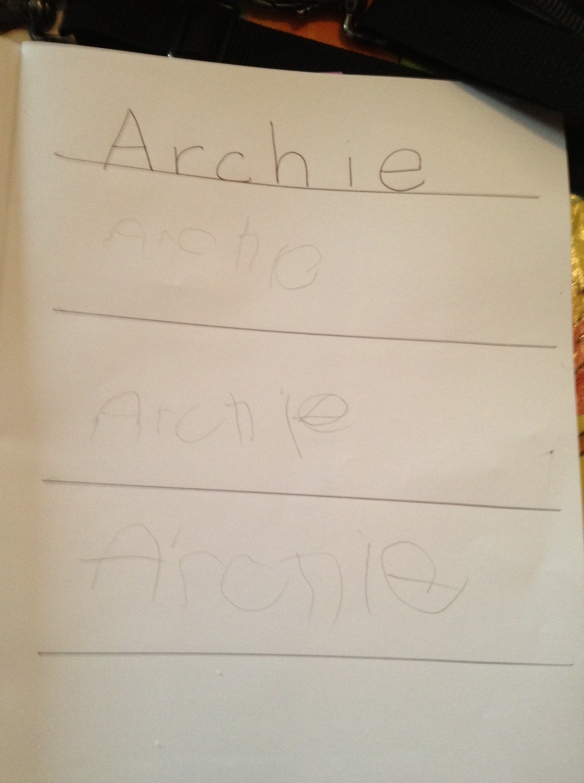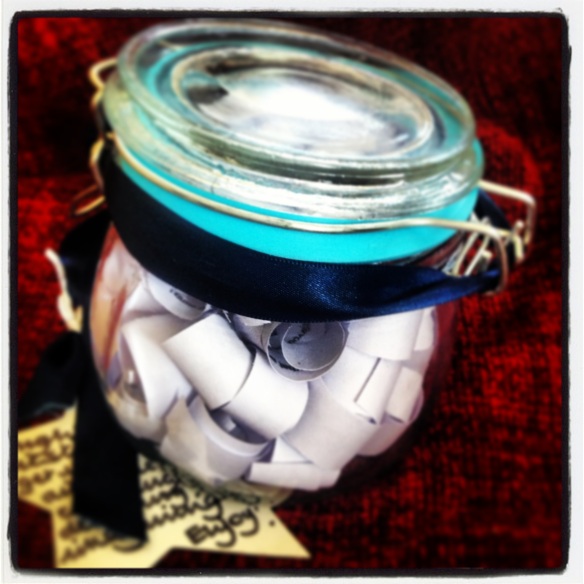It has been a long break. And times have been <ahem> interesting.
The big update is that Archie has now finally returned to respite, and seems delighted to be back (it was very much his choice). The path back was not entirely smooth. For a while Archie’s behaviour was quite simply dangerous. Careful diary keeping, note taking and ABC-ing revealed that he wanted respite to be the same nights every week, rather than alternate days every other week. When this was (eventually) sorted the massively dangerous explosions decreased and we were left with manageable distressed behaviours. Lessons have been learned over the last few months, and I think perhaps the most important one is that when Archie’s behaviour becomes extremely challenging, there is always a reason. It is not “just autism”.
We have all had to learn new ways of interacting with Archie over the last few months. Understanding what he is trying to tell us, is not easy at the moment as his ability to initiate communication is somewhat reduced. This may be due to adolescence & simply being a Kevin the teenager, it may be due to increased anxiety, it may be because he desperately want to talk and so is rejecting other methods of communication. It does mean that Archie’s frustration and anxiety levels are closer to the surface and he can find it harder to stay in control.
And so onto explosions. I have found over the years, that a lot of the issues that come with autism don’t really bother me at all. I can do routine. I can do firm boundaries. I can do strange obsessions. I can do limited sleep and I can do personal care. But I find physically challenging behaviours incredibly difficult to deal with. Over the summer outbursts were coming so fast and furious I began to be scared of them. And that’s really not a good place to be. Like it or lump it, if you live with it you have to be able to deal with it. Now, I still find them tricky, but I’m not scared, and not being scared means I can stay calm, which means they don’t escalate.
A big help in learning to cope with these new outbursts was found via a D.ESCAL8 course. Run by Des Cooke, he came across me on Twitter where I won a free parent place on his upcoming three day workshop. To be honest, I’d go on any three day course if it meant a couple of nights peace and quiet in a hotel, so I said yes before I even really looked at the course content, but when I did, I realised I had been offered a course that was very useful for our current circumstances.
Commonly known as PI courses, D.ESCAL8 teach physical intervention skills. They are one of many companies in the UK that do this, but are somewhat unique in their approach. First, it’s clear they really knows their stuff. Des has been around people with learning disabilities since his childhood, and has been working in the field for years. This gives him an understanding of, and respect for people with learning disabilities that can sometimes be absent in professional training. This perspective underpins the D.ESCAL8 approach and training courses. Throughout the three days of the course we were repeatedly reminded us of the perspective of the person with learning disabilities – how would our actions feel to them?
Physical techniques tend to be taught in isolation by many other training companies. D.ESCAL8 training starts with a whole day of discussion about building relationships with individuals in distress and different real world scenarios, where PBS (Positive Behaviour Support, a psychological perspective) was used. We were taught to let go of our need to be in control, to stop thinking about winning and losing and to think about strategies that might support people living in distress. It is often a need for control that leads to poor decisions being made and being able to let go of that can revolutionise the way those with learning disabilities are cared for.
Discussions also expanded into terminology and how the casual use of common terms such as challenging behaviours can shape the way we think about individuals with learning disabilities. Des taught us to think of our aim not being to control challenging behaviours, but rather to assist individuals in distress. In Archie’s case this is certainly very true. His behaviour becomes difficult for us to deal with, when he is distressed in some way. In his case either his basic needs are not being met, or he has a question he needs answered but cannot express. When his responses are recognised as being the result of being in distress our response changes. We do not need to control these behaviours, we need to ensure his social care package is the one he wants, and preferably provide some speech and language therapy (although the latter seems a wish too far in the current financial and political climate). Further discussion on why challenging behaviour is an outdated term can be found on the D.ESCAL8 website.
During the course there were plenty of opportunities for role play. Des is a gifted actor, and he ensured all of us experienced what it felt like to be out of our comfort zones. This was extremely useful for me. I know Archie so well and am so tuned into him that I understand his moods and can read him easily. Being put in a position where I didn’t know how to react, where I made a complete pig’s ear of a role play and where I felt completely out of my depth was a powerful reminder of how it might feel to be someone working with Archie for the first time.
The final two days included physical skills interspersed with theory and discussion. We practiced on each other, and with Des. We learned to extract ourselves safely from grabs and hair pulls and that it is better not to do anything physical. We were ‘lucky’ enough to experience what it feels like to be hit (having been taught the defensive move first!) and through all this built up the confidence to cope with these situations. For me it was this resilience confidence that was the most useful outcome of the course. I went home feeling like I could cope. And I can and I have. I was also able to recognise when things had become dangerous and ensure that the council coughed up for the support Archie needed.
The course I attended was mixed, aimed at parents/care staff/service managers. Some of the care staff and managers had attended a number of PI courses. They staff were absolutely raving about how brilliant this course was, particularly the ones who had taken courses by other providers recently – they felt this one was quite different. They were returning to their places of work enthusiastic and confident about dealing with any challenges. As a parent of a vulnerable young person, I love seeing happy staff.
If I had to summarise in one line why I found this course so inspiring I think I would say it was lovely to attend training which matched my beliefs and focus as a parent, where the course content recognised the value of those with learning disabilities and focused on making things better for them as a priority rather than just protecting staff. Of course this approach is win-win really – if the needs of those with learning disabilities are met, then staff are protected, far more than if they’re given a crash course in kung-fu moves and self defence poses.
The one fly in the ointment is without doubt the dreaded C word. Cuts. With massive cuts to social care budgets already in place and set to deepen training is often one of the first things to be ditched. It seems to be blatantly obvious to me that decent training makes economic sense and that it will cut costs in the long run. Giving staff the tools to do their jobs well increases morale and reduces the number of incidents. Ensuring all staff understand the law and best practice decreases the risk of serious incidents, or management time spent dealing with complaints. I would beg any service managers reading this to view this sort of training as an investment that will provide a long term return both in economic and social terms. Ideally I’d love everyone working with Archie to have been on a D.ESCAL8 three day course. If we ever run our own team that will happen.
And to finish with a photo. Taken fairly recently, it was a difficult day at times. But in part with the skills learned on the D.ESCAL8 course, we were still able to make it up Beardown Tors on Dartmoor for a picnic. This was a great thing for Archie, and being outside in the bleak open space of Dartmoor, helped him to regulate and calm himself. That’s been the lasting effect of the course – it has given us back these moments.











